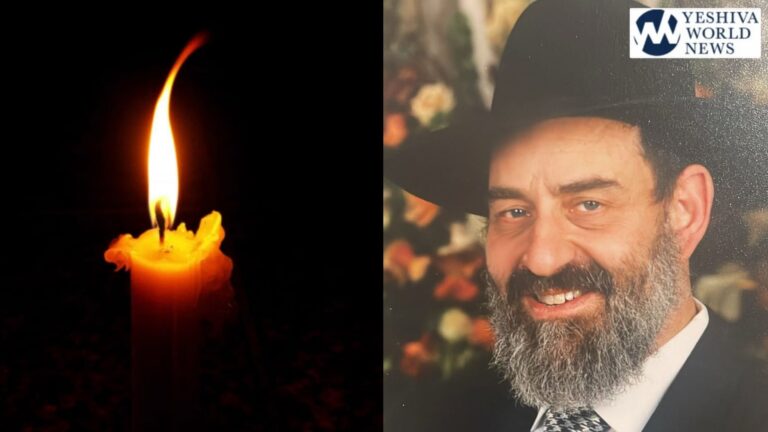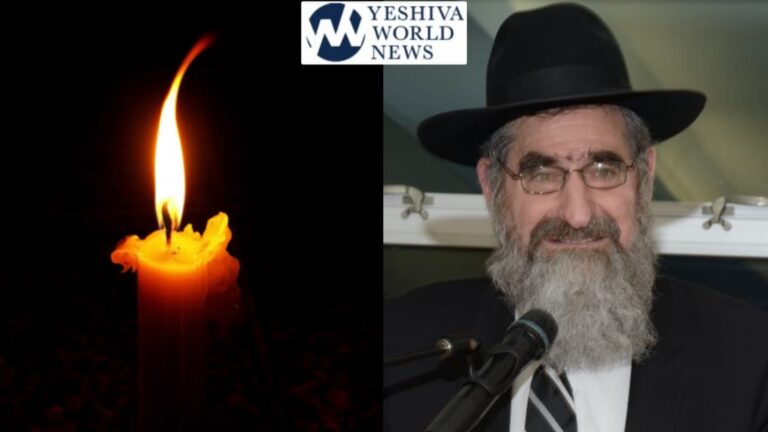 The following is an article by Fernanda Santos for the NY Times:
The following is an article by Fernanda Santos for the NY Times:
Mayor Michael R. Bloomberg was getting an earful. “He created this crisis so that he can take credit for fixing it and get our votes in exchange,” one commenter wrote on a Brooklyn blog. Someone else remarked, “I got to my store I got 2 tickets from the Sanitation police. I sure deserved it Bloomie. I will NOT vote for you.”
The writers were reacting to the news late last month that Mr. Bloomberg would restore money for an after-school voucher program that is popular among Orthodox Jewish families. But some scorned the move as blatant political expediency days before the election.
Without question, Mr. Bloomberg was eager to woo the city’s Hasidic Jewish voters. He met behind closed doors with influential rabbis, courted their congregations, and gave an eight-page interview to an Orthodox magazine, describing the challenge of growing up Jewish in an Irish and Italian neighborhood.
Still, his share of the vote fell sharply in Brooklyn’s largest Hasidic enclaves on Nov. 3, and the decline was one of the sharpest among any group of voters.
“We didn’t vote as Hasidim. We voted as New Yorkers,” said Mendy Hecht, 36, a Lubavitcher in Crown Heights, who pulled the lever for the mayor’s Democratic opponent, Comptroller William C. Thompson Jr. “My vote was a vote of protest against Bloomberg.”
Four years ago, Mr. Bloomberg received near-unanimous backing from Hasidic voters, who are known for voting as a bloc, basing their choice on a community leader’s recommendation and a candidate’s ties to local religious elders. On the surface, it seemed logical that they would again unite behind the mayor, a Jewish billionaire who had donated generously to local organizations since taking office in 2001.
But that’s not the way it turned out. Higher property taxes, an increase in water rates and other fees, a perceived parking-ticket blitz and a nagging feeling that money can truly buy anything, including a third term, made many Hasidic voters angry at Mr. Bloomberg.
In 2005, the mayor got four out of five votes cast in the Hasidic sections of Crown Heights, Borough Park and Williamsburg. He carried those same areas this time, but with considerably less support, according to an analysis.
The analysis, by John H. Mollenkopf, director of the Center for Urban Research at the Graduate Center at the City University of New York, is based on voting results in election districts identified in the 2000 Census as having at least 100 people who speak Yiddish, the preferred language in Hasidic households. Although a somewhat arbitrary measure, it nonetheless offers a reasonable guide to the mood in Hasidic communities, an insular but influential part of the city’s political fabric.
Mr. Bloomberg got less than half the votes in the Hasidic sections of Crown Heights and just about half in Williamsburg. In Borough Park, where turnout rose by 22 percent from the 2005 election, he received almost the same number of votes as he did four years ago, but the number of votes cast for his rival, Mr. Thompson, nearly tripled compared with those that went for the mayor’s opponent in 2005, Fernando Ferrer, Mr. Mollenkopf’s analysis showed.
Though the Bloomberg campaign acknowledges that the mayor’s vote share decreased in Orthodox Jewish communities, its field director, Maura Keaney, disputed the findings of Mr. Mollenkopf’s analysis, in part, she said, because census numbers from nine years ago do not reflect recent changes. She also noted that some election districts in Crown Heights include many black voters, which she said skewed the analysis.
Ms. Keaney said that Mr. Bloomberg got 7.8 percent fewer votes in Orthodox communities, the same rate of decline citywide, but that he still got about 72 percent of the Orthodox vote.
Comparing the two analyses is difficult; the campaign’s study does not differentiate the Hasidic vote from the wider Orthodox vote, and its numbers relate to a larger area that includes Kew Gardens Hills and Far Rockaway in Queens and Midwood in Brooklyn.
Survey differences aside, interviews in Hasidic enclaves showed a community divided. Dissatisfaction with the mayor, however, was only part of the explanation. Political alliances played a role, especially in Borough Park, where Councilman Simcha Felder endorsed Mr. Bloomberg and Assemblyman Dov Hikind, who had endorsed the mayor in 2005, backed Mr. Thompson.
Race was also a factor, but one that may have cost Mr. Thompson some support. Some Hasidic voters in Crown Heights said Mr. Thompson was hurt by endorsements he got from Al Sharpton and former Mayor David N. Dinkins because of the roles the two played in the 1991 disturbances there, which pitted blacks and Jews against each other.
But a majority of people interviewed for this article – a tailor, a rabbi, an aspiring politician, journalists and the leader of a nonprofit organization, among many others – said that what most distinguished this election from past ones was a generational split.
“The younger generation doesn’t rely on their leaders to guide them,” said Isaac Abraham, 59, a Satmar who lives in Williamsburg and mounted an energetic but unsuccessful campaign to win the Democratic nomination for a City Council seat.
“They’re not blindfolded,” Mr. Abraham said. “The young people, they base their votes on results.”
YWN PHOTO LINK: Click HERE for dozens of magnificent photos of Bloomberg visiting the Rebbes – taken by YWN photographer Hillel Engel.
(Source: NY Times)











5 Responses
I’m glad this article will enlighten the Mayor as to his unpopularity amongst unzer chevra. The problem is he doesn’t care not one bit. All he cares is that he won a third term. He was not at all humbled by the fact that he spent $100,000,000.00 & won by such a small margin against someone without a good political record who spent less than a quarter of that.
Duhhhhh…… rocket science??
What ever happened to the SECRET BALLOT. Canidates after the election should not know how a group voted. This way he would not use his office to retaliated against those who voted against him. Why did an advisor to one of the recent Presidents tell the President forget about the Jews they don’t vote for you any way. Why should the Presidents action be depended and who voted for him. President Roosevelt did not bomb Auswitz but helped the Polish underground because he believe the Jewish vote was a definte and the Polish vote wasn’t.
This article is correct. I voted for the Conservative Party candidate, someone who represents my political and social philosophy. Yeshiva World News readers, take note.
I voted Conservative Party, too. They represent what I believe in–Normal decent family life, traditional values.
Both Bloomberg and Thompson are radicals who want to overturn all the normal decent values of society.